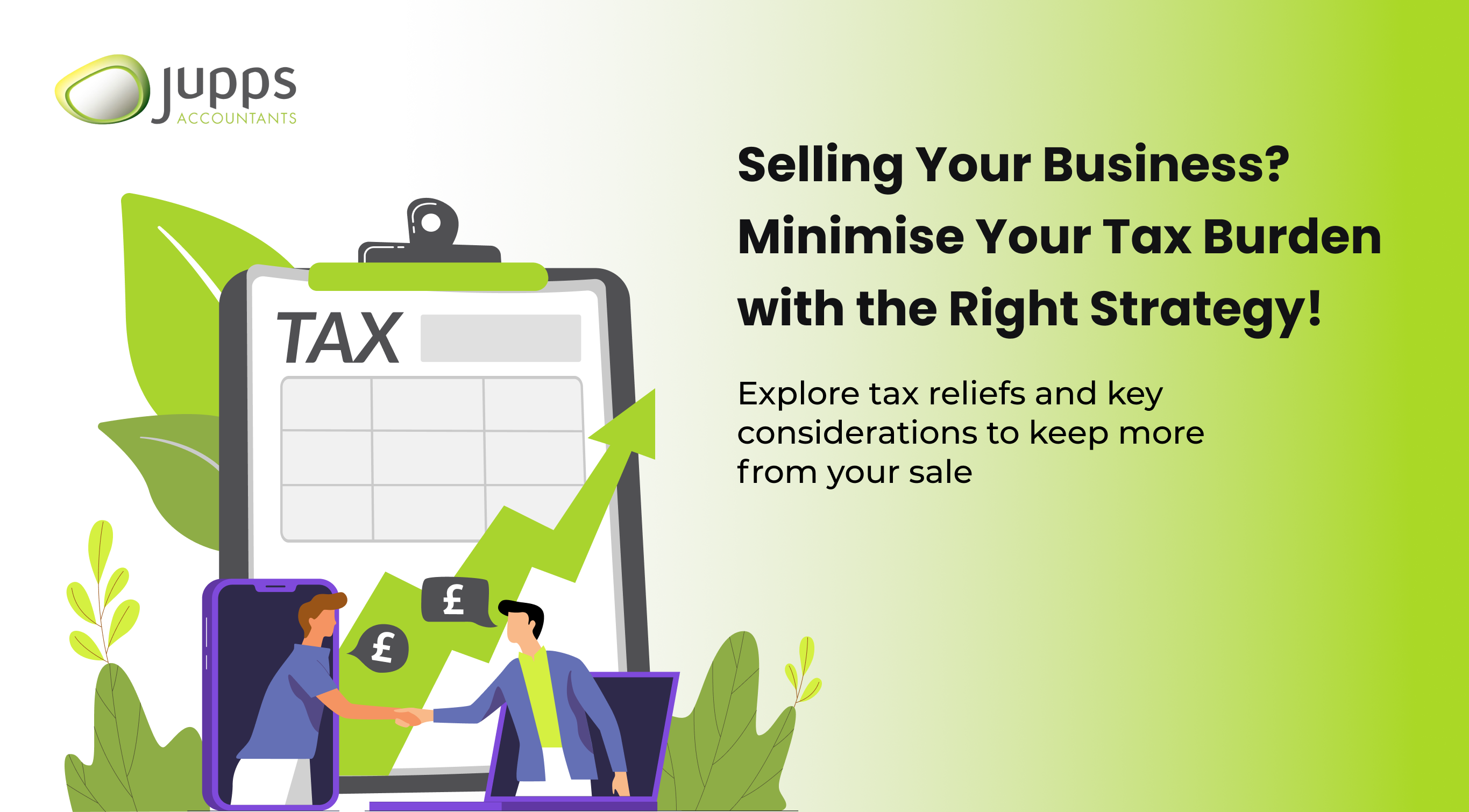
Selling a business is a key milestone for entrepreneurs but can have a big impact on your tax bill. There are various methods for selling your business, each with its own tax and legal obligations:
🔹 Asset sale – Specific assets and liabilities are sold, instead of the company itself.
🔹 Share sale (if Ltd company) – Ownership transfer of the whole company, including the assets, liabilities, and legal obligations. This can potentially qualify for Business Asset Disposal Relief (BADR).
🔹 Management buyout (MBO) or buy-in (MBI) – The existing management team buys the company from the current owners, or external investors/managers acquire the business.
🔹 Merger or acquisition – Either two companies combine into one, or one buys the other. These can be structured in various ways, such as share exchanges, cash payments, or a combination of both.
📊 Taxes to Consider
💰 Capital Gains Tax (CGT) – This is normally the main tax consideration when selling your business and must be paid on profits from the sale. From 30th October 2024, basic rate taxpayers pay 18% CGT on profits from a business sale (up from 10%), with higher rate taxpayers paying 24% (increased from 20%). The tax-free CGT allowance is £3,000 for the 2024/25 tax year and is expected to remain the same for 2025/26, subject to the budget announcement on 26th March 2025.
🏢 Corporation Tax – Applicable when a business owner sells part or all of a limited company’s assets (e.g., plant and machinery). This tax is paid by limited companies on any chargeable gains.
💡 Potential Reliefs
Business Asset Disposal Relief (BADR) – Previously known as Entrepreneurs Relief, BADR reduces the CGT rate to 10% for disposals up to a £1 million lifetime limit. This rate will increase to 14% from 6th April 2025 and 18% from 6th April 2026. Any gains above this threshold will be taxed at standard CGT rates. To qualify, both of the following must apply for at least 2 years up to the business sale date:
– You are a sole trader or business partner
– You’ve owned the business for at least 2 years
🔄 Business Asset Rollover Relief – Delays the payment of CGT if the proceeds from a qualifying asset sale are reinvested in a new qualifying asset used in the business.
🎁 Gift Hold-Over Relief – Available if you give away business assets (including certain shares) or sell them for less than market value to assist the buyer.
🏦 Incorporation Relief – You may be able to delay paying CGT if you transfer your business to a company in exchange for shares. This relief ensures you won’t pay tax until you sell or dispose of the shares.
As always, each of these reliefs is subject to specific conditions. For more details, visit the Government website 👉 www.gov.uk
